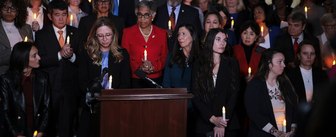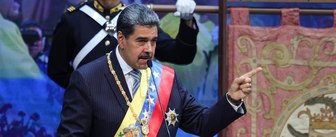Americans tend to say that it is better to be more equal, but potentially poorer, than wealthier but less equal.
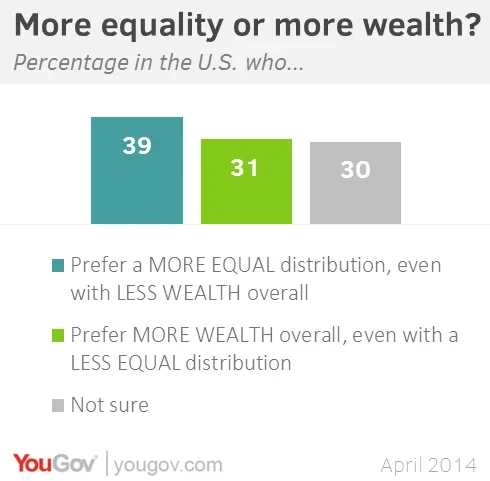
At the end of last year it emerged that the United States in 2013 was the most unequal that it had been since before the Great Depression. For the first time ever, too, the poorest 90% of Americans earn less than 50% of all pretax income in the country – 49.6% to be exact. This growth in inequality began around the late 1970s, as the U.S. economy adopted a progressively more free-market orientation. Defenders of this shift say that greater economic freedom, beyond being an intrinsic good, also freed entrepreneurs to create massive economic growth and that even if most rewards go to those who took the risks, economic growth benefits everyone even as society become more unequal.
The latest research from YouGov shows that Americans tend to favor a society which is more equal but poorer (39%) as opposed to a society which is wealthier but more unequal (31%). All Americans under the age of 65 tend to prefer equality over wealth, though 41% of over-65s would rather see a wealthier but more unequal society.
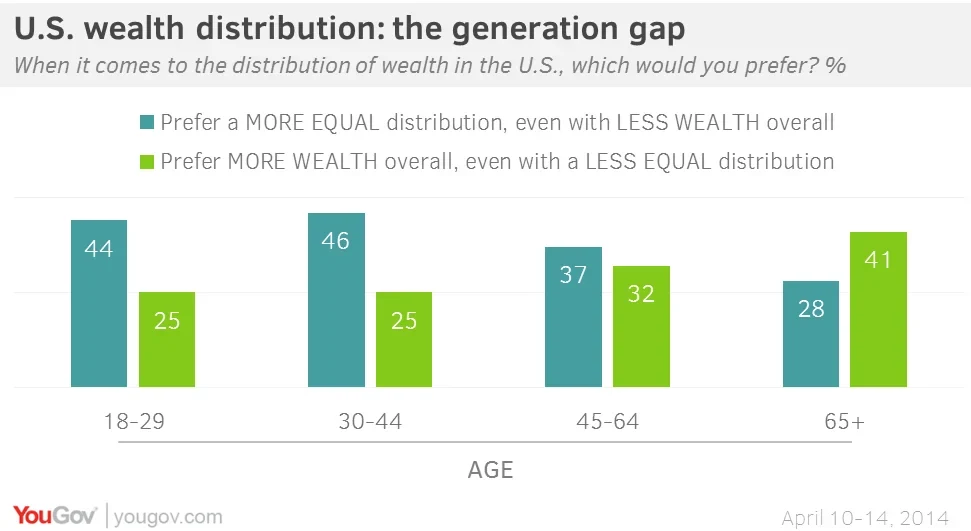
Asked whether the current distrbution of wealth is fair, most Americans (52%) say that it is unfair. 79% of Democrats, and 48% of Independents say that wealth should be more evenly distributed. Most Republicans (55%), however, say that the current distribution is fair, with only 24% of Republicans wanting wealth to be distributed more evenly.
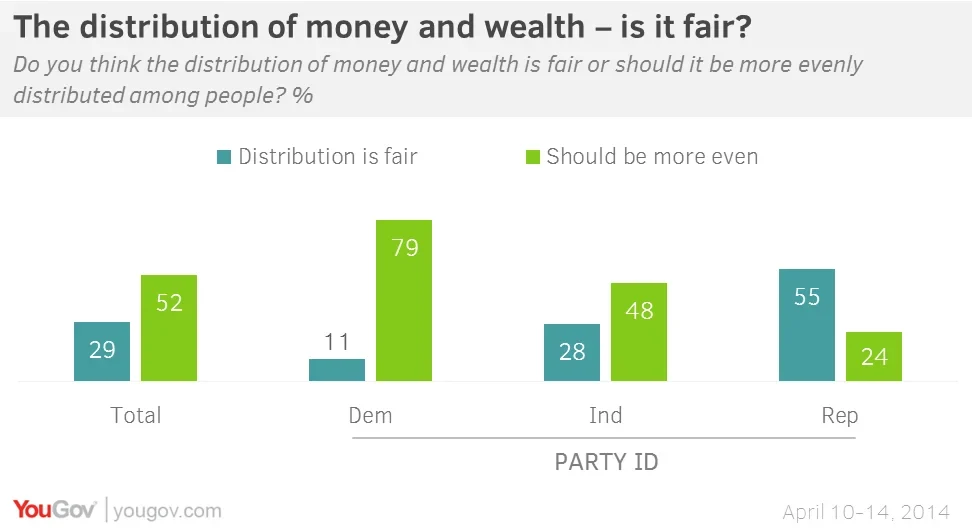
Despite this, the trade-off between wealth and equality may not actually be a real one. A recent study by the IMF found that income inequality actually has a negative impact on economic growth.
Full poll results can be found here.
Image: Getty






